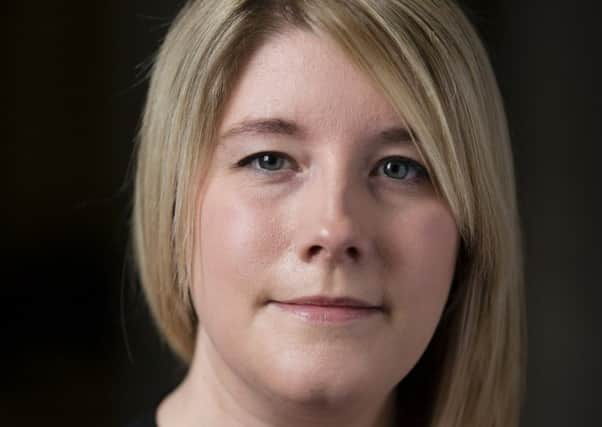Fiona McGrevey: Many people with autism could be homeless


Researchers from University College London and Kensington & Chelsea Learning Disability Service found evidence suggesting that autistic adults are over-represented among the homeless population.
They have called for more research to understand the links between autism and homelessness, to help prevent autistic people becoming homeless and to improve support for those already homeless.
Advertisement
Hide AdAdvertisement
Hide AdThe National Autistic Society has not been involved in the research but wants to draw attention to the findings as this is an important and under discussed issue. At the same time, the Scottish Government has published statistics that reveal Scottish local authorities received 34,972 applications for homelessness assistance between 1 April 2017 and 31 March 2018, 1 per cent higher than the same period during 2016/17.
Anecdotal reports from autism clinicians and keyworkers, as well as two small studies from a few years ago, have suggested that there may be high numbers of autistic people in the homeless population. This is the first academic research to look at this issue properly.
The researchers gathered initial evidence about the prevalence of autistic traits in homeless people. They worked with one homeless outreach team in the UK and screened 106 people they support to see if they could be autistic.
The found that 12.3 per cent of homeless people had a range of autistic ‘traits’ in line with diagnostic criteria. This is substantially higher than the general population autism prevalence of 1 per cent. It is not clear if this 12 per cent were actually autistic, but the screening suggested that they could be. This could equate to more than 4,000 homeless people in Scotland being autistic.
This is an important and robust study, which suggests that there could be a significant number of homeless autistic adults potentially living without an understanding of their needs or appropriate support. Many autistic people struggle to get the support they need and face huge difficulties throughout their lives, including high rates of mental health problems, underemployment and social isolation. We’ve heard of autistic adults falling through gaps in support and into homelessness but there’s very little research into this or awareness as an issue.
Writing in Autism, the researchers said: “If autistic difficulties are common among homeless populations, then this has important implications.
“Many people are homeless in the UK; the most recent estimate is that there are almost 5000 rough sleepers at any one point, and there is a much larger group of people with no stable accommodation who are termed the ‘hidden homeless’. There may therefore be a considerable number of homeless autistic adults who are not having their needs met and who are in an extremely vulnerable position.”
Dr Andrew Greenhill, a clinical psychologist involved in the research, said that one person who stood out for him was an older man who had lived on the street for 45 years.
Advertisement
Hide AdAdvertisement
Hide AdHe ran away from his family home because his relationship with his father was poor and physically abusive. He survived by following a regular routine and sleeping in the same place every night, relying on food at day-centres and drop ins.
He refused all professional help or contact, and existed in a ‘bubble’ whereby he refused all attempts to engage. It was clear that he found social engagement of any kind very distressing and was highly motivated to avoid it.
Eventually he was admitted to hospital after it appeared he’d had a stroke and was unable to care for himself. He eventually accepted a room in a low intensity ‘cottage hotel’ hostel, where there were few, if any expectations about things like form filling, attending meetings or assessments. He has since managed to maintain his preference for privacy and solitude whilst having his basic needs met, with support workers to keep an eye on him and help out.
This is the first peer-reviewed study to provide initial evidence of a link between autism and homelessness and provides an important platform to get to grips with this issue. We now need further research to investigate this link, and to develop the right support for homeless autistic people and to prevent those at risk from falling into homelessness. Homeless autistic people have gone unrecognised and unsupported for far too long.
For more information please go to www.autism.org.uk/get-involved/media-centre/news/2018-06-12-autism-and-homelessness-study.aspxFiona McGrevey, the National Autistic Society Scotland.